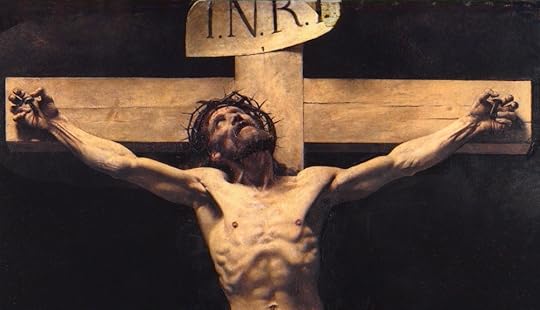The Passion: A Critique of Meaning and Power

In the second week of my online event, The Omega Course, we’ll be exploring a subversive reading of Christianity that articulates it as having a pyro-theological core that burns up the regimes of meaning and power.
The reading will be taken from a rather hard to get book called Christ and the End of Meaning by Paul Hessert (currently going for $100). In this book he articulates the twin ideological drives of understanding and control. He writes of how “Meaningful Christianity” acts as a way legitimizing these pursuits by grounding meaning and power in the divine. Secular society feeds off, mirrors, and/or seeks legitimation from religion by valorizing understanding and control.
In contrast, Hessert argues that the scandal of Christianity lies in the way that it breaks these apart. In contrast, he articulates a gospel that is foolishness to those who want meaning and a stumbling block to those who seek power. Reading the Crucifixion against signs (meaning) and wonders (power), Hessert views it as a fundamental smashing of societies circle of reality. Christianity can neither be the creator or legitimator of ideology, but only its judge, jury, and executioner.
The bold claim of the book is that, to be a Christian, involves courageously living into the absence of meaning and power. Becoming an impotent fool in the eyes of the world.
The Crucifixion thus functions in much the same way as Shoah does within much Jewish thought. Not as an event which can be swallowed up in meaning, but as that which sticks in the throat of all attempts. The result is a phenomenally powerful and challenging reading of the Crucifixion that fundamentally stands against all attempts at reducing it to some kind of metaphysical system of meaning (Ransom, Satisfaction, Moral etc.)
If you’d like to find out more about this searing approach to Christianity, sign up to The Omega Course here
Peter Rollins's Blog
- Peter Rollins's profile
- 314 followers



